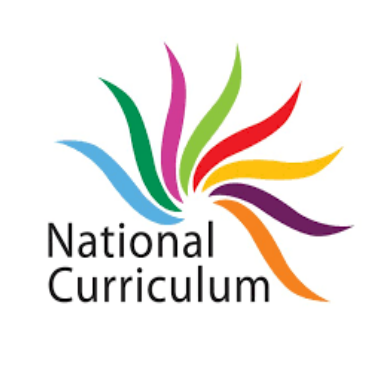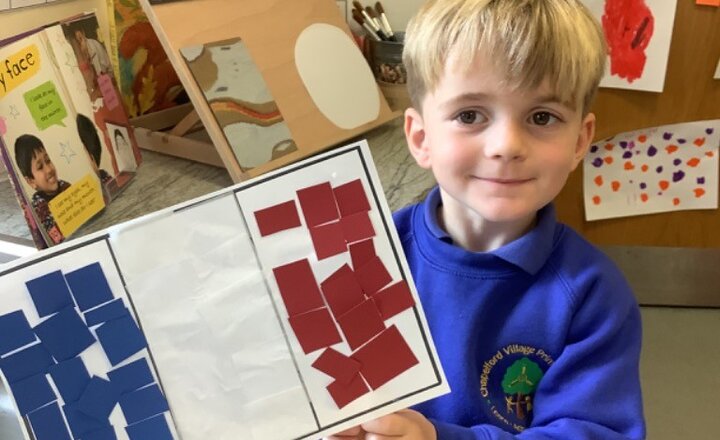Modern Foreign languages

'With Languages, you are at home anywhere' - Edmund De Waal
At CVPS we have an ambitious and well-designed MFL curriculum. It is clearly progressive, and knowledge and skills have been carefully planned across the four stages to be sequential and to lay the foundations for further language learning. Children enjoy language learning at Chapelford and understand the importance of learning another language. The statement of intent is well-developed and thought out, considering the needs of our pupils, and the implementation is the focus of on-going monitoring.
In order to fulfil our vision and our statement of intent, the Lead Teacher for MFL is going to:
• Monitor the frequency of which MFL is taught in KS2, ensuring fidelity to the LTP
• Support staff in the planning and teaching of high-quality French lessons, ensuring resources are adapted to suit the arising needs of our pupils Embed prior knowledge and learning by establishing frequent opportunities/activities to recall, retrieve, apply and manipulate prior learning
Intent
At Chapelford Village Primary School, we believe that the learning of a language provides an essential and valuable educational, social and cultural experience for all our pupils. We believe that learning another language is a window into different countries and their cultures. Studying a language gives children the opportunity to celebrate and welcome differences in our ever-changing world, to develop and deepen their understanding and appreciation of other languages and to foster their curiosity of the world beyond Chapelford.
At Chapelford, we are committed to ensuring our French teaching provide the foundation for learning further languages, as well as the means to access international opportunities for study and work in later life. The teaching of French in Key Stage 2 provides an appropriate balance of spoken and written language, enabling progress in all four skills (reading, writing, speaking and listening) and lays the foundations for further foreign language teaching at Key Stage 3.
Our KS2 French curriculum is ambitious and has been designed and sequenced to lay the foundations for further language learning. Children progressively acquire, use and apply a growing bank of vocabulary organised around purposeful topics, with opportunities to recall, use and manipulate this knowledge throughout their learning in KS2. The progression of knowledge in vocabulary, phonics and grammar enables pupils to enhance their communication skills, express themselves in French and to develop a conversation manner.
In KS1, the curriculum has been sequenced and designed to expose children to different languages and cultures and to give them the opportunity to learn new language skills before formal learning in KS2. We recognise that not all children begin their learning journey at Chapelford with a secure understanding or awareness of people, culture and communities. Skills in listening, attention, understanding and speaking are of high importance and we aim to develop these skills progressively through listening to nursery rhymes, stories and songs in French and through high quality modelling and recall.
.jpeg)
.jpeg)
.jpeg)
.jpeg)
Implementation
Children develop their love of language learning and develop skills throughout their time in school. The French curriculum at CVPS is based upon the 2014 National Curriculum and attainment targets and is supported by the Primary Languages Network scheme of work, which is adapted to meet the individual needs of our own children. Details of the units of work, including the knowledge and skill progression, covered in each year group can be found on the school’s long term plan.
In KS2, French is taught weekly for 30 minutes. Lessons are planned and delivered through a variety of integrated activities that focus on listening, speaking, reading and writing, as well as developing children’s awareness of cultural differences in other countries. We use a variety of techniques to encourage the children to have an active engagement in the modern foreign language: these include games, role-play and songs. Through the Primary Languages Network, children have access resources that have been made by native speakers of the language which helps develop their listening and speaking skills.
This is supplemented by spoken French in the classroom beyond the timetabled lesson, which includes the use of French to give basics instructions and refer to familiar object within the classroom. This enables children to develop early language acquisition skills that facilitate their understanding of the patterns of language and how these differ from, or are similar to, English.
In KS1, pupils are engaged in MFL learning for 15 minutes every week. Sessions will build upon prior learning and are planned and delivered through activities that focus on speaking and listening, as well as developing children’s awareness of cultural differences in other countries.
Impact
Our French curriculum is planned to demonstrate progression and to ensure that the children make substantial progress in one language. This is done informally during the lessons to assess and evaluate what the children have learned and what their next steps are. Through monitoring, we will measure the impact of the subject through:
• Pupil Voice:
➢ Children will know more, say more and remember more.
➢ Children will be able to articulate their understanding of their MFL knowledge.
➢ Knowledge taught is being retained by children and continually revisited.
➢ Children can apply the skills they have been taught.
➢ Children understand why they learn French and can explain why they enjoy it and why it is important. ➢ Children in KS1 can discuss and demonstrate an awareness of other languages and cultures.
• Monitoring:
➢ Children can recognise and apply key French vocabulary verbally. This is progressive throughout KS2.
➢ Some evidence of children’s written work which is progressive throughout KS2.
➢ Lessons are showing fidelity to the LTP and are clearly progressive and sequential.
➢ Children in KS1 can discuss and demonstrate an awareness of other languages and cultures.
• Subject Leader:
➢ Collate images and videos of children’s learning.
➢ Dialogue with colleagues to share good practice.
➢ Report the standards in French to SLT and Governors.
➢ Track the progress of pupils ensuring most children make expected progress in MFL
Click on the National Curriculum image for the National Curriculum programme of study for Modern Foreign Languages.
Related News



